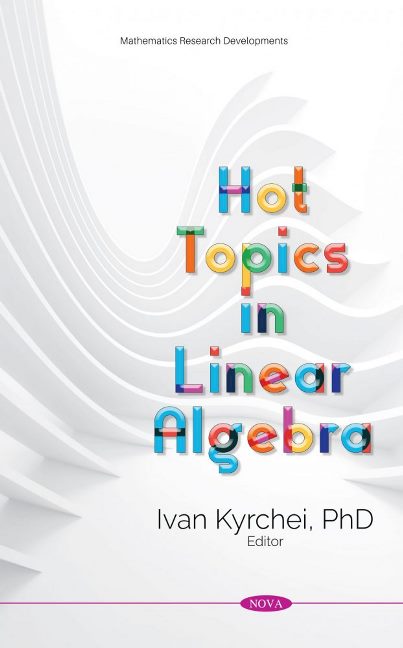
Hot Topics in Linear Algebra
Edited by: Ivan Kyrchei
Published
by Nova Science Publishers, Inc
In Stock
Original price
£172.99
Current price
£112.44
Edited by: Ivan Kyrchei
Published
by Nova Science Publishers, Inc
Original price
£172.99
Current price
£112.44
Published: 24-Jun-2020
ISBN: 9781536177701
Hardback
307 Pages
ISBN: 9781536177701
Hardback
307 Pages
Subjects:
Algebra
